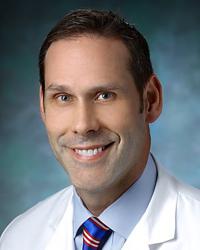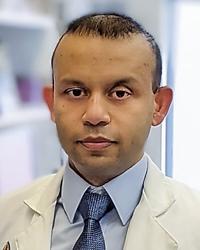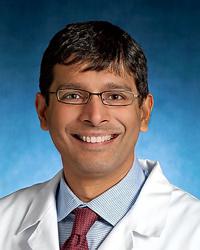Research Lab Results
-
The Spinal Fusion Laboratory
Five to 35 percent of spine fusionprocedures fail, even when using the gold standard treatment of grafting bone from the patient's own iliac crest. Fusion failure, otherwise known as pseudoarthrosis, is a major cause of failed back surgery syndrome (FBSS) and results in significant pain and disability, increasing the need for additional procedures and driving up health care costs. The ultimate goal of the Spinal Fusion Laboratory is to eliminate pseudoarthrosis by using animal models to study various strategies for improving spinal fusion outcomes, including delivery of various growth factors and biological agents; stem cell therapies and tissue engineering approaches. -
Suman Paul Laboratory
At the Suman Paul laboratory, we are focused on developing new antibodies and cell therapies for cancer treatment. Our team of researchers are dedicated to identifying novel targets, mechanisms for cancer therapy and developing innovative solutions to improve patient outcomes. We work closely with basic science researchers and clinicians to accelerate the translation of our discoveries into clinical practice. -
S.C.O.R.E. Lab
The mission of the Stroke Cognitive Outcomes and Recovery (S.C.O.R.E.) Lab is to enhance knowledge of brain mechanisms that allow people recover language, empathy, and other cognitive and communicative functions after stroke, and to improve ways to facilitate recovery of these functions after stroke. We also seek to improve the understanding of neurobiology of primary progressive aphasia., and how to enhance communication in people with this group of clinical syndromes. -
Sanjay Desai Lab
Research in the Sanjay Desai Lab focuses primarily on clinical outcomes in survivors of critical illnesses, such as acute lung injury. We also investigate techniques to improve graduate medical education and are conducting a clinical trial on the comparative effectiveness of models that optimize patient safety and resident education. Our research examines factors such as residency work-hour reform, hand hygiene practices and the use of etiquette-based communication.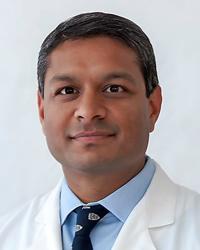
-
Shelby Kutty Laboratory
Shelby Kutty, M.D., Ph.D., is an authority on cardiovascular imaging, including echocardiography, magnetic resonance imaging and computed tomography of congenital heart disease. His areas of academic interest have focused on myocardial function assessment, therapeutic ultrasound and cardiovascular outcomes. Kutty’s research includes developing new imaging technology applications such as a smartphone application that uses patients’ echocardiographic images to track their progress. His work gives pediatric cardiologists better ways to predict outcomes in their patients and provide the most effective and appropriate treatments.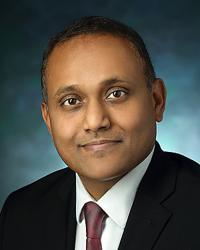
-
Richard Chaisson Lab
Research in the Richard Chaisson Lab primarily examines tuberculosis and HIV infection, with specific focus on global epidemiology, clinical trials, diagnostics and public health interventions. Our recent research has involved evaluating a molecular diagnostic test for tuberculosis in HIV patients; observing TB responses during treatment of pulmonary tuberculosis; and examining antiretroviral therapy adherence, virologic and immunologic outcomes in adolescents compared with adults in Southern Africa.
-
Rahul Koka Lab
Research in the Rahul Koka Lab focuses on pediatric airways, patient safety and health disparities. Recent studies have focused on the relationship between socioeconomic status and perioperative outcomes and patient safety factors related to interoperative cardiac arrests. We also performed effects analyses of the maintenance and repair of anesthetic equipment in various medical environments. -
Richard Moore Lab
Research interests in the Richard Moore Lab include clinical epidemiology, costs, cost-effectiveness and outcomes of HIV/AIDS. We recently examined whether the effect of delaying antiretroviral therapy initiation in HIV-positive adults is modified by age at entry into care.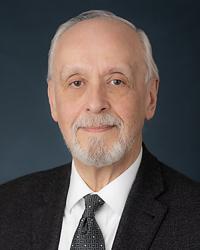
-
Romsai Boonyasai Lab
Research in the Romsai Boonyasai Lab focuses on systems-based approaches for improving health care quality, including reducing harm during care transitions after hospital discharge and improving outcomes related to hypertension and other chronic diseases. We recently have focused on developing and evaluating practice-based tools for improving the accuracy of blood pressure measurement, overcoming clinical inertia to treatment, and engaging patients in self-management of their health. -
Gregory Kirk Lab
Research in the Gregory Kirk Lab examines the natural history of viral infections — particularly HIV and hepatitis viruses — in the U.S. and globally. As part of the ALIVE (AIDS Linked to the Intravenous Experience) study, our research looks at a range of pathogenetic, clinical behavioral issues, with a special focus on non-AIDS-related outcomes of HIV, including cancer and liver and lung diseases. We use imaging and clinical, genetic, epigenetic and proteomic methods to identify and learn more about people at greatest risk for clinically relevant outcomes from HIV, hepatitis B and hepatitis C infections. Our long-term goal is to translate our findings into targeted interventions that help reduce the disease burden of these infections.

